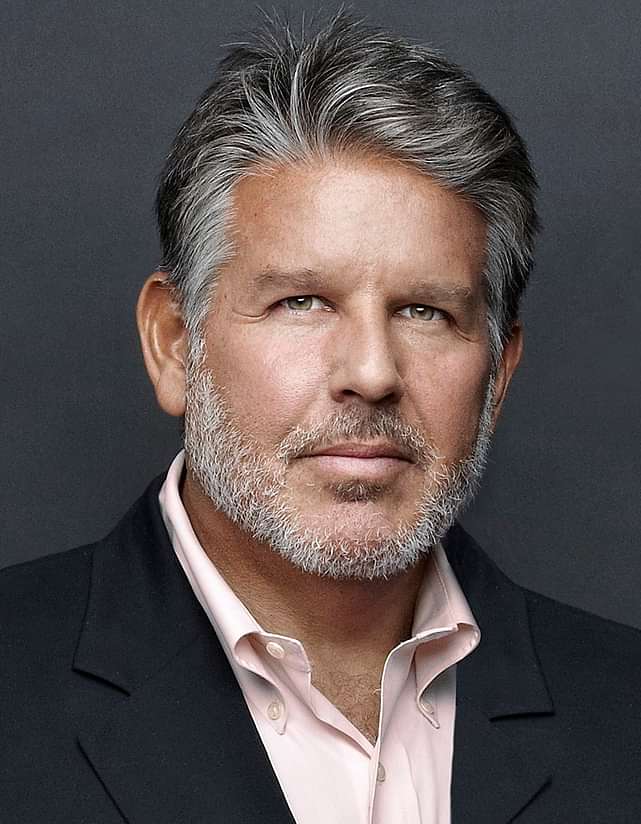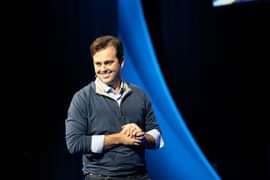
November 21, 2019
Author Turns Investigative Eye Toward Classmates
In his new book, William D. Cohan '77 delves into the lives of four Andover contemporaries.by Allyson Irish
It’s a helluva good story. One I’m sure that William D. Cohan and fellow classmates recount with humor and delight.
During his upper spring, Cohan, business manager for The Phillipian, secured so many ads for the student newspaper that they had surplus funds. As he explains in his latest book, Four Friends: Promising Lives Cut Short, the newspaper gave half of the money back to the Academy and then Cohan determined that “a nice celebratory dinner was very much in order.”
So I decided we would celebrate at Locke-Ober, once upon a time the most expensive restaurant in downtown Boston. I reserved a private room, with an open bar, and arranged to pay for our meal with a check drawn on The Phillipian account. The 15 or so members of the outgoing board showed up on time, and in some form of respectable attire. We ate and drank to our hearts’ content. Anything anyone wanted, and as much again, was provided. At the end of the evening, I wrote out a check to the restaurant for something like $1,250.
Although Fred Stott ’36, secretary of the Academy, had OK’d Cohan’s plan for “adequate but not excessive” dining, there may have been a difference of interpretation. Cohan admits he exhibited some chutzpah in choosing one of Boston’s fanciest restaurants.
“By the time I showed up at Headmaster Sizer’s house the next morning, nursing a considerable hangover (I am certain I was not alone in my condition), the meal at Locke-Ober had already become legendary,” he writes. “Sizer pulled me aside. ‘I heard you had quite the dinner last night,’ he said.”
Cohan shares this tale not to emphasize any special privilege or prep school entitlement, but to underline something he feels is fundamental and unique to his and others’ experience at Andover—the expectation and encouragement of youth to successfully navigate the adult world.
“No question that my Andover experience has helped me in my career,” says Cohan. “I would not have survived Wall Street for 17 years without it.”
In Four Friends, Cohan turns the lens inward, delving into the Andover and post-Andover experiences of Jack Berman ’75, a lawyer who was gunned down in a California law office in 1993; Will Daniel ’77, the free-spirited grandson of President Harry Truman who was struck and killed in 2000 by a taxi in NYC; Harry Bull ’77, who died in 1999 with his two young daughters on a Lake Michigan boating trip; and John F. Kennedy Jr. ’79, who died with his wife and sister-in-law—one month before Bull—while piloting his own plane to a family wedding in Hyannis Port, Mass.
Four Friends is a departure of sorts for Cohan, who previously worked as a journalist and as a Wall Street investment banker. The author has penned five other books that take a hard-nosed approach to Wall Street banking behemoths as well as to the Duke University men’s lacrosse team. Why the pivot?
“From a professional point of view, I wanted to have the same kind of reporting challenge that I had writing those other books, while also doing something much more personal and reflective of the vicissitudes of life,” Cohan says.
A common thread in his books has been personal experience. Cohan worked at Lazard Frères & Co. and Merrill Lynch and competed against Bear Stearns; he graduated from Duke.
I’ve drifted toward subjects where I already had a sense of the culture and the community—the ethos and gestalt of the place. [In Four Friends] I also really wanted to explore the fragility of life and friendship, how it evolves over time, and how people’s lives take their course and then sometimes seemingly innocuous decisions can become existential and fatal. I think we all can relate. We don’t often think so much of the fragility of life, but of course life is incredibly fragile.
”[footnote]
Cohan recently penned an article about PA English instructor Lou Bernieri, who was recognized this year by the nonprofit organization Honored, for inspirational teaching.
Cohan admits that writing about Andover contemporaries whose lives ended so tragically—and surprisingly—sometimes left him a bit paranoid.
“There were times when I wondered—absurdly—whether or not I was going to live to see the book published,” he says. “It’s the way your mind can play tricks on you.”
Although he’s used to tackling tough subjects and asking difficult questions, Cohan says this book offered a different set of challenges. He was interviewing classmates, widows, and parents about people they loved who had died. Those he interviewed for the book were generous with their time and memories and overall, Cohan says the response from alumni and family members has been positive.
“A lot of people were quite moved by it and found the book very relatable to their own experiences,” Cohan says. “Everybody knows people who died young and tragically—this book just brings that back for people.”
But not all reviewers have agreed. Some have questioned Cohan’s lack of a unifying theme in the book and his inclusion of details, including high school drinking and drug use, as a celebration of “privilege on display.”
Cohan defends his approach, saying the book is a window into a different era; a time when the drinking age was 18 and when social norms were being challenged throughout the country and on the Andover campus.
“I could have sugar-coated it more,” he says. “Yes, obviously Andover is quite wealthy in terms of resources and endowment. I felt privileged to be at Andover, but never felt I was in a uniquely privileged environment. I think my experience at Andover was very typical. This book was more a desire to remember my friends of that time in a different era.”
Other Stories

Spring 2024 issue will explore how Andover is shaping the future




